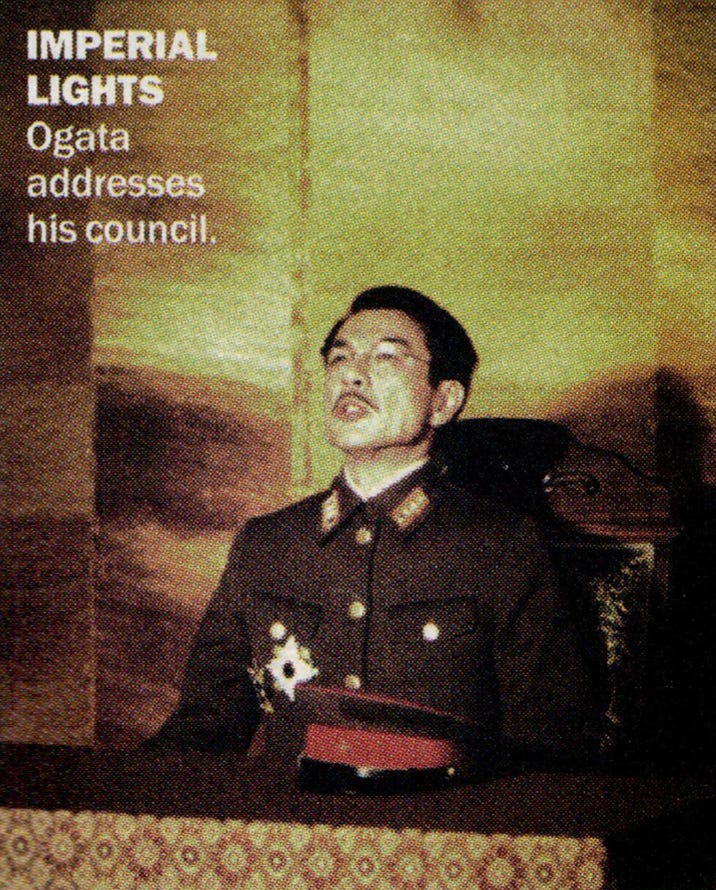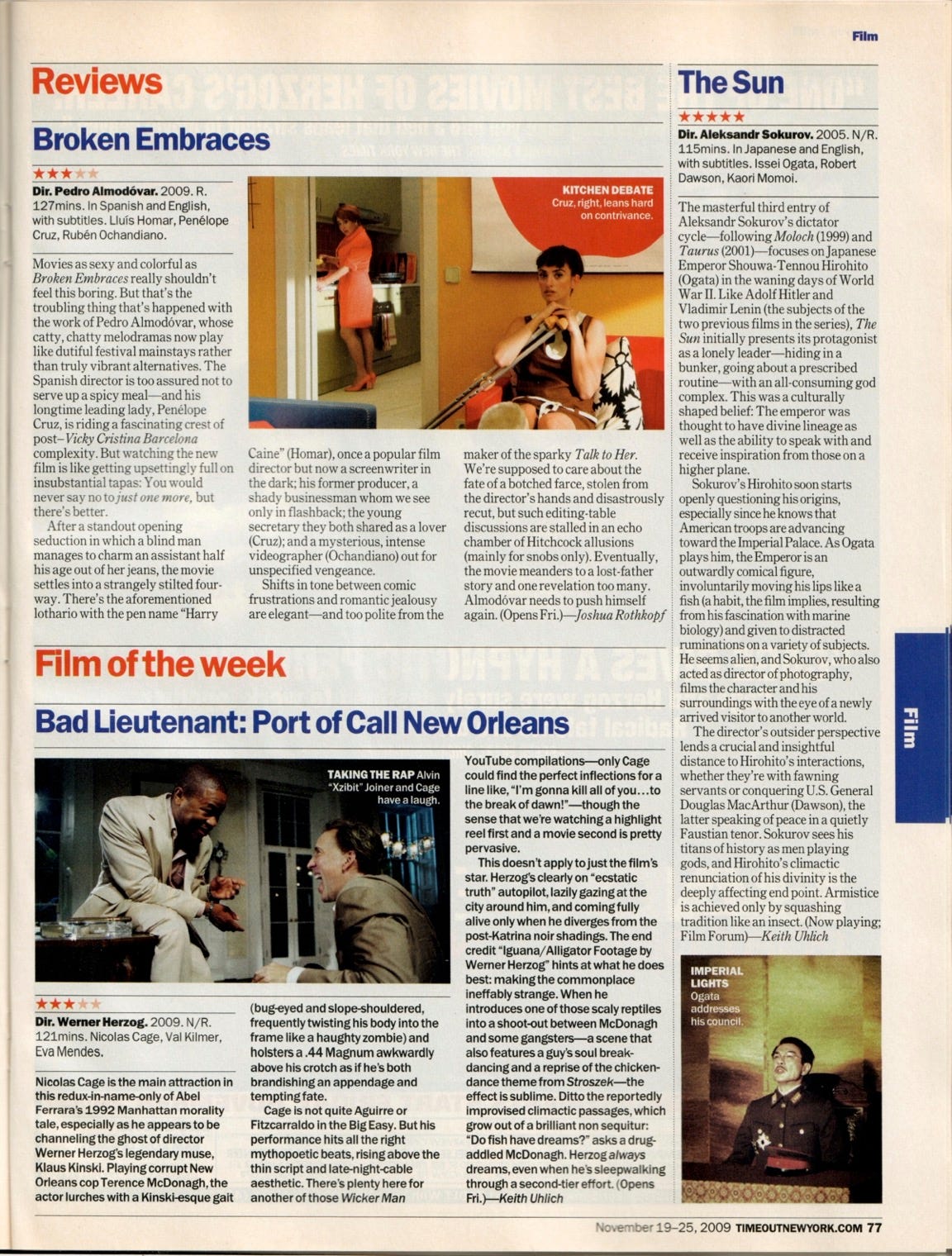★★★★★
Dir. Aleksandr Sokurov. 2005. N/R. 115mins. In Japanese and English, with subtitles. Issei Ogata, Robert Dawson, Kaori Momoi.
The masterful third entry of Aleksandr Sokurov’s dictator cycle—following Moloch (1999) and Taurus (2001)—focuses on Japanese Emperor Shouwa-Tennou Hirohito (Ogata) in the waning days of World War II. Like Adolf Hitler and Vladimir Lenin (the subjects of the two previous films in the series), The Sun initially presents its protagonist as a lonely leader—hiding in a bunker, going about a prescribed routine—with an all-consuming god complex. This was a culturally shaped belief: The emperor was thought to have divine lineage as well as the ability to speak with and receive inspiration from those on a higher plane.
Sokurov’s Hirohito soon starts openly questioning his origins, especially since he knows that American troops are advancing toward the Imperial Palace. As Ogata plays him, the Emperor is an outwardly comical figure, involuntarily moving his lips like a fish (a habit, the film implies, resulting from his fascination with marine biology) and given to distracted ruminations on a variety of subjects. He seems alien, and Sokurov, who also acted as director of photography, films the character and his surroundings with the eye of a newly arrived visitor to another world.
The director’s outsider perspective lends a crucial and insightful distance to Hirohito’s interactions, whether they’re with fawning servants or conquering U.S. General Douglas MacArthur (Dawson), the latter speaking of peace in a quietly Faustian tenor. Sokurov sees his titans of history as men playing gods, and Hirohito’s climactic renunciation of his divinity is the deeply affecting end point. Armistice is achieved only by squashing tradition like an insect.—Keith Uhlich



